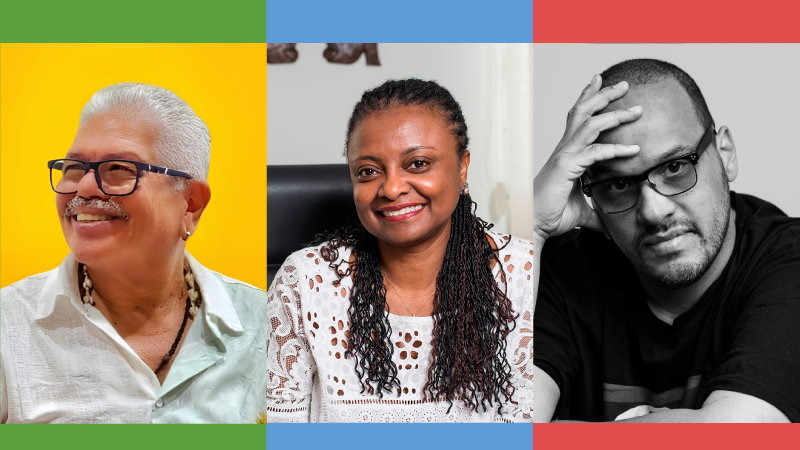
Photo: Agustín Lao-Montes, Nilma Lino Gomes and Federico Pita (Disclosure)
Examining the interrelationship between labor inequality and racial inequality from the 16th century to the present day is the objective of the round table “Historical reparations and related inequalities: towards restorative justice and Afro-reparations”, which will be held on August 16th, at 7 pm, in the auditorium of the UFMG School of Architecture.
The meeting will feature the participation of CALAS-IEAT professor, professor Agustín Lao-Montes, from the University of Masschusetts Amherst, professor Nilma Lino Gomes from the Faculty of Education at UFMG and activist Federico Pita, political scientist from the University of Buenos Aires and founder of the Argentine African Diaspora (Diafar).
The round table is open to the participation of students, academics, activists and others interested in the debate on the topic of social and racial justice.
The problem of race and its historical repair
The category of race played a crucial role in the formation of modern colonial power, forging hierarchical identities and unequal social relations. Slavery and the transatlantic trade, recognized as crimes against humanity, laid the foundations of the modern world system. In response to these historical injustices, historical reparation policies seek to improve the quality of life of Afro-descendant communities in terms of social, civil, political, economic and cultural citizenship.
In addition to reflecting on the relationship between labor inequality and racial inequality in the context of capitalist modernity, guests will debate how racial regimes of labor exploitation have perpetuated inequalities in the global distribution of wealth and how historical reparation policies can be a path to social and racial justice.
According to the organizers, the meeting is expected to be a space for reflection on criticisms of historical reparation policies, especially in the context of the advancement of global rights and conservative sectors in Latin America, contributing to a broader and deeper understanding of the policies historical reparations and their impact on Afro-descendant communities.